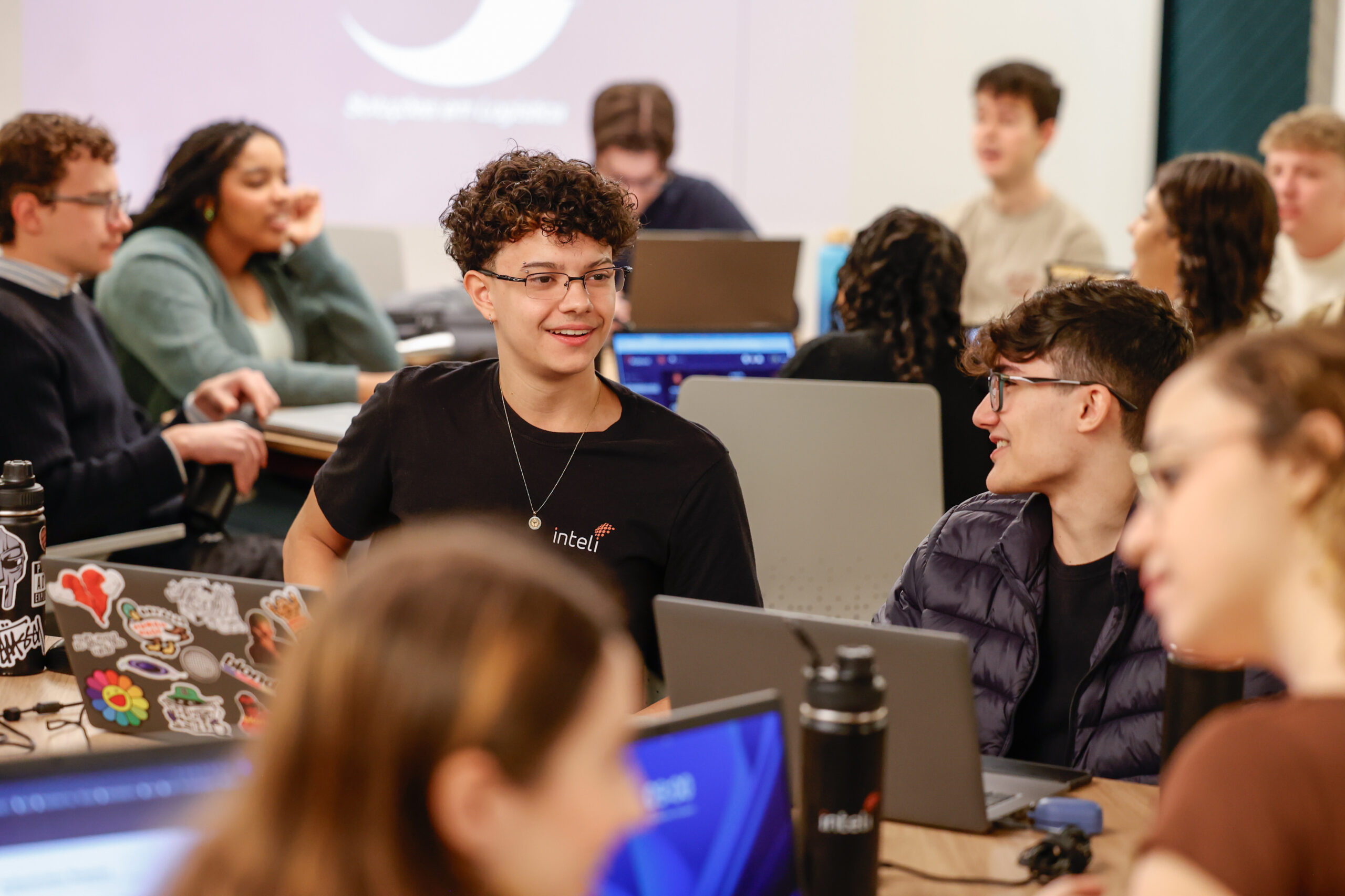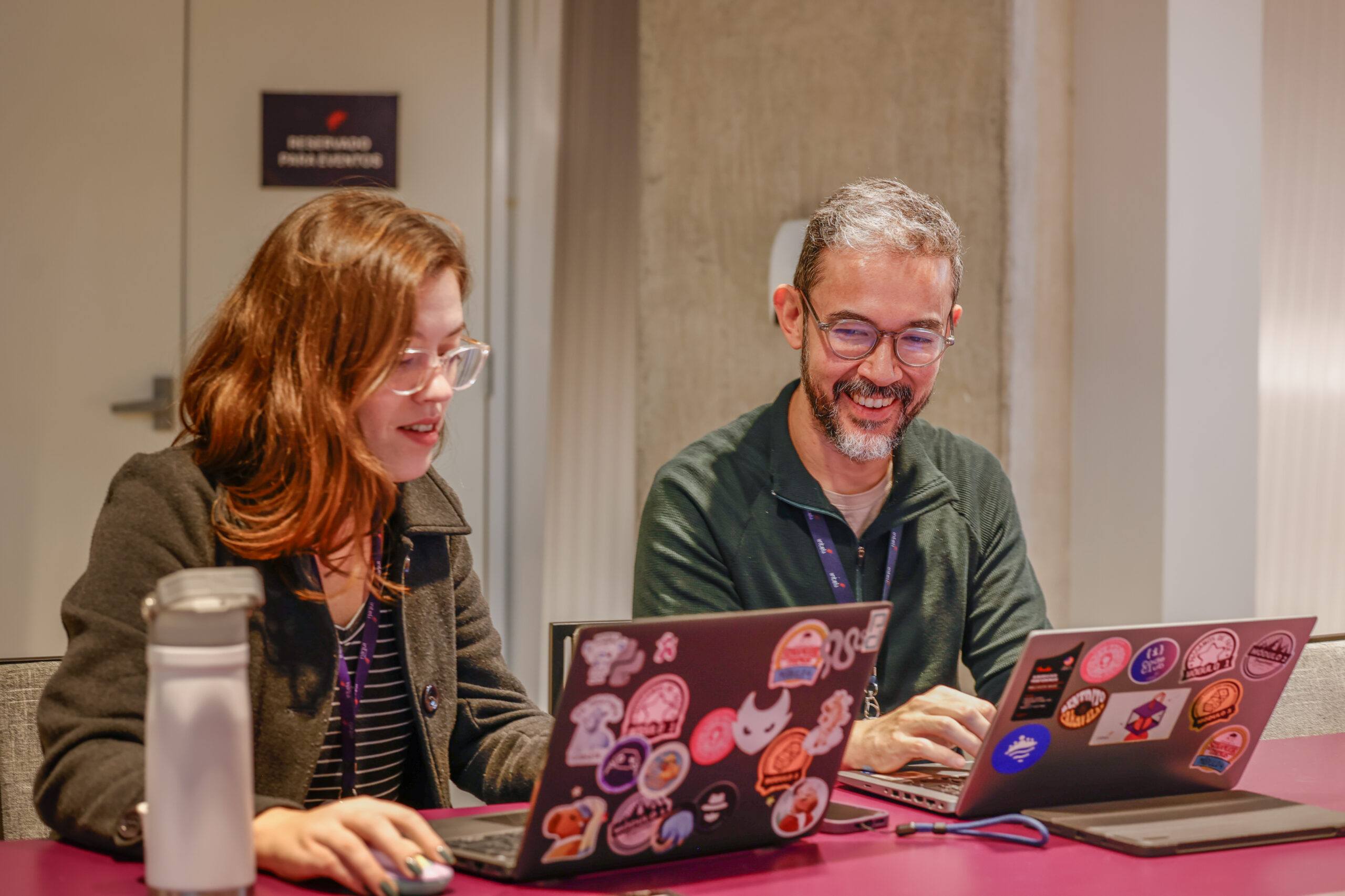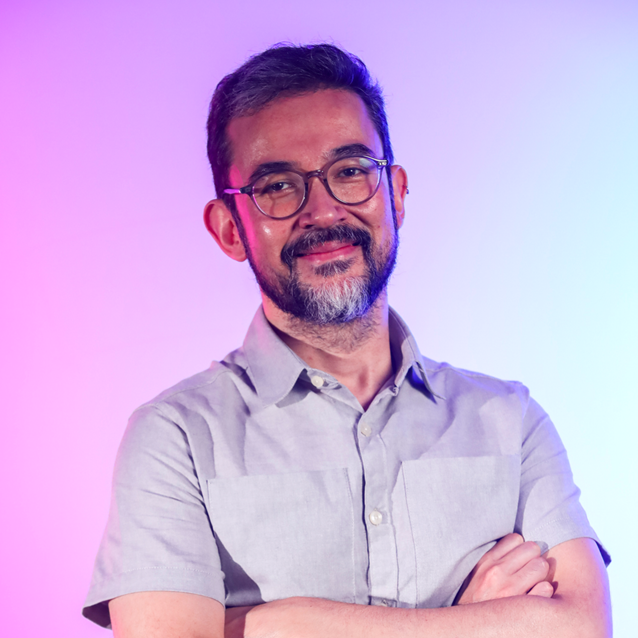
The first year of undergraduate studies here at Inteli is common for all our courses. This means that all our students - whether they're studying ADM Tech, Computer Science, Computer Engineering, Software Engineering or Information Systems - study the same things and carry out the same projects.
Yes, a Business student learns to program, just as a Computer Science student learns about management, finance, entrepreneurship, etc. This is one of the differentials of our first year at university.
The purpose of integration

And why do we place all our students in this common core? "Every business has become a technology business " - this is a phrase we hear and say a lot here at Inteli. It justifies many of our institutional strategies, from launching new courses to curating the specific content our students study.
Between the lines of this idea, we understand that any professional in the Business area today needs to know a lot about Technology, just as every Computer professional needs to understand Business in order to carry out their projects strategically.
More than this interdisciplinary super professional, we want to train technology leaders: people who lead teams and institutions holistically, because they understand a lot about the business, human skills and the technologies that support any production.
So, right from the start, our students are challenged to solve problems that require this multiple knowledge, and this will be very useful in their future professions, whatever they may be.
What skills students develop
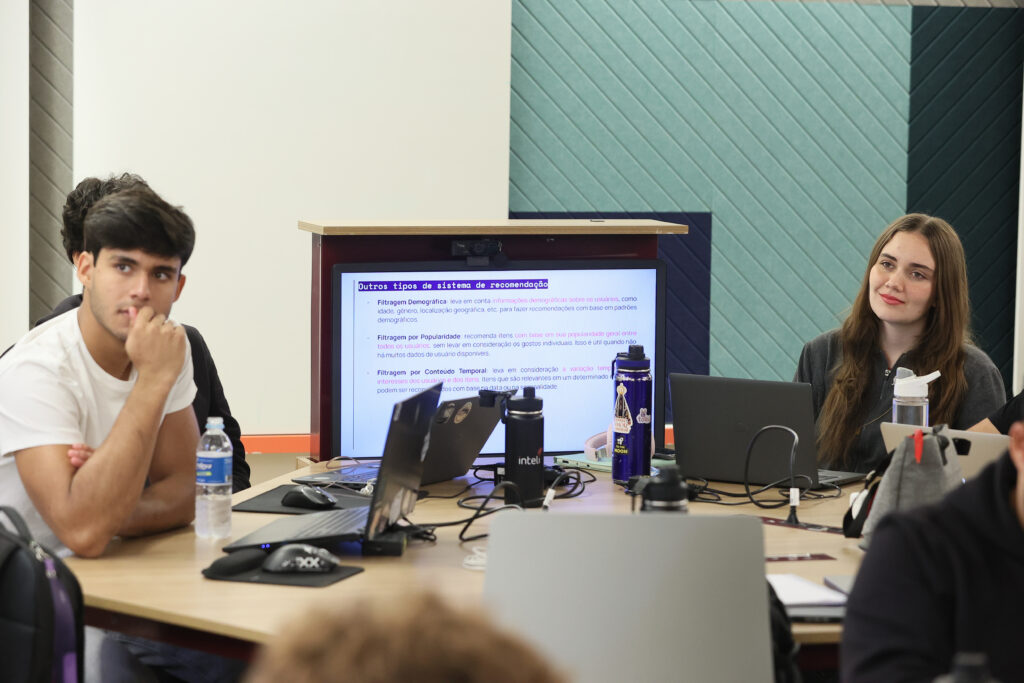
So, during our first year, all our students develop digital games, web applications, predictive models with AI and Internet of Things solutions for real institutions. These are "wildcard" projects which, as well as being essential for more advanced projects within Inteli's courses, are very useful in the technology market.
To make a digital game, the student learns Programming, applying Mathematics and Physics content to the movements, animations and interactions of the games. Design classes not only teach the design of characters, scenarios and interfaces, but also focus on understanding who the player is and their interests, as well as developing mechanics and dynamics that make the game attractive and fun.
The Business classes bring tools that help the student understand the context and market positioning of the partner institution, so that the game designed will be aligned with these strategies and add real value. We also have Leadership classes, which will help students to relate in a structured and empathetic way to their colleagues in the group, making sure that everyone listens and is listened to, so that every delivery is the result of a real collective and orchestrated effort, with well-established bonds of companionship and professionalism.
This whole logic of classes and content that support the projects is repeated in the development of web applications, predictive models with AI and Internet of Things solutions.
Each new project requires different lessons
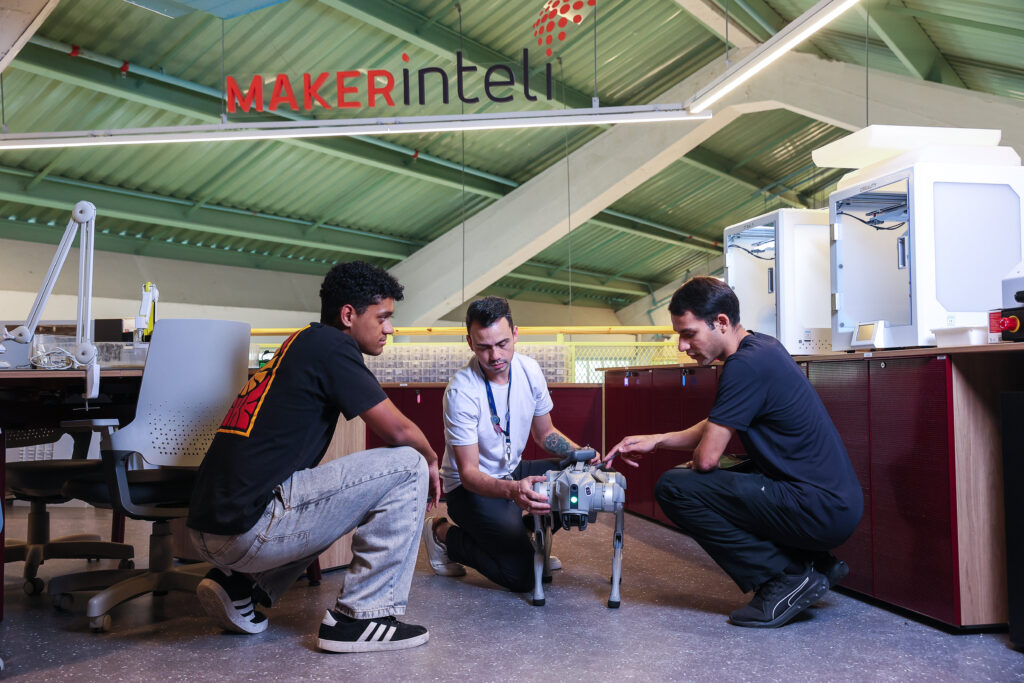
On the one hand, there are the technical fundamentals: object-oriented programming, structures and databases, search and sorting algorithms, machine learning, calculus, statistics, electronics, networks, operating systems and the human-computer interface.
On the other hand, management and impact skills come into play: agile methodologies, usability, accessibility, product positioning, risk analysis, data governance, corporate governance, finance, marketing, culture and organizational design.
All these themes come together to form a broad technical repertoire, always connected to real experiences and human dilemmas, the essential combination for preparing complete leaders for the future.
The impact on practice
And if all our projects involve real institutions and real problems, we have our "icing on the cake": purpose. Everything a student studies here can be applied to the project, directly or indirectly, and add value to the partner.
Imagine being a first-year student at your university and already delivering solutions to Meta, USP's Faculty of Medicine, BTG Pactual, Vivo, Natura, Bayer, Banco Pan, Unilever, MRV, Dell, Ambev, BCG, Rappi, as well as various NGOs and social institutions?
We've already done all this in just the first year! And that's what becomes the purpose of studying, discussing, doing and learning every day - we see the impact of our work in practice, helping Brazilian (and some foreign) institutions to thrive.
And in a few years' time, do you know what happens to all this experience accumulated in projects and teams? These students are easily absorbed by the best institutions, they start their internships and are hired, some of them already occupying leadership positions and positions above what is expected for their age. Sounds like a dream? It's real!
Why does this make sense at Inteli?
Finally, a personal statement: I graduated from one of the best Brazilian higher education institutions, I had the privilege of studying with the best teachers and having contact with excellent classmates, who I now see occupying excellent positions in technology in Brazil and around the world.
My institution, however, didn't prepare us for the market. Much of what I learned there only made sense later, when I was already employed and facing the day-to-day demands of technology consulting. We had to learn a lot of things on our own, things that traditional university didn't provide.
Hence, a recurring thought of mine today, and of several other fellow teachers, is "how I wish I had gone to a school like Inteli..." I believe that says a lot about the transformative potential of this real Project-Based Learning methodology that we apply here in its entirety. And regardless of the course or pathway, we believe that this is the way to transform the reality of higher education and technological development in Brazil. From the very first year.


